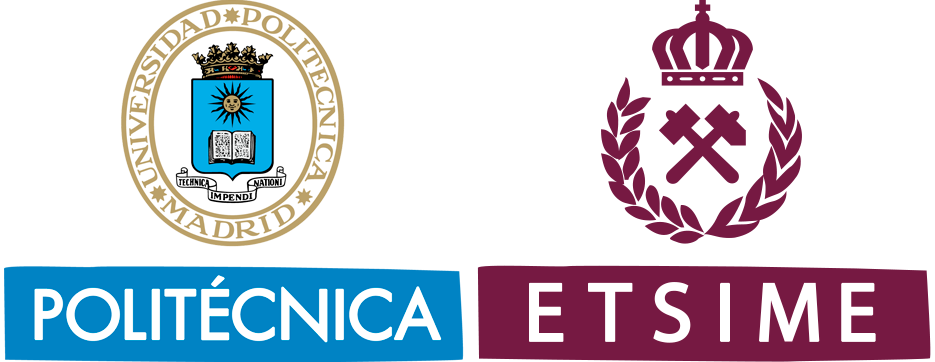Application of the Service-Learning Methodology in Engineering Studies
Service-Learning is a teaching method that allows developing skills in sustainability and social responsibility and therefore the use of this method in the University enables the satisfaction of such needs. Service-Learning is used in other countries with a programme based on the environment within and outside the university in order to implement sustainability and social responsibility. The Service-Learning must promote the critical analysis and the comprehension of social problems and necessities, which will enable the students to apply their skills and develop creative solutions by themselves. The aim of this project is to work with this methodology on energy poverty. Energy poverty refers to situation of households that cannot satisfy the minimum energetic needs, such as keeping a suitable temperature in summer and in winter. Moreover, this problem has been sharpened by the economic crisis. Energetic poverty does not only imply a decrease of life quality but also, in extreme situations, the death of people who are disadvantaged or with a high risk of social exclusion. The intention of this project is to undertake actions to adapt this kind of households.
PHASES AND STAGES
- Lectures to recruit students from our faculty in the Service-Learning methodology and the energetic poverty project.
- Student training in the Service-Learning methodology through a practical lecture.
- Selection of slum area. In this task, Madrid’s City Hall will propose a slum area with risk of social exclusion, poverty, etc. where the project can be applied. In this process, the Tomillo Foundation, which is already working on the field through their subproject “Barrios Sostenibles” (Sustainable Neighbourhoods), will be participating.
- Gridding and sampling of the neighbourhood to select houses to study. University students could develop a statistic sample of the slum area to collect a significant number of houses, which can be enough to give value to the results obtained.
- Analysis of electrical systems and energetic elements. This task will require different analysis, such as an analysis of the electrical systems, energetic equipment, its energy classification, suitability of the equipment installed in the room.
- Energy isolation. If a house is not energetically efficient from the point of view of the isolation, a higher need of energy is required, which implies a higher cost, which would lead to considering the household as energetically poor.
- Implementing monitoring systems and campaigns. In this stage we will measure the temperature in situ or we will monitor it with low cost devices in order to obtain a better monitoring of the housing.
- Possible solutions. Once the houses are characterised and those that can be in energetic poverty are found, it is convenient to find possible solutions (improving the isolation, improving the equipment, changing consumption habits…)
- Neighbour advice. A way of reducing the exposure to energy poverty of a house is by learning about the possible actions to avoid by the inhabitants and understanding what such solutions imply. The advice action is considered depending on the specific conditions of each household, which can go from changing the electricity tariff to reconditioning the building.
- Developing End of Degree/Master Projects. In these activities, financing will be searched.
TEACHING MATERIAL AND RESOURCES
Teaching guides will be written for the correct development of the projects, as well as a collaboration contract for students along with Madrid’s City Hall. This documentation will be supervised by our faculty’s Academic Planning Commission (“Comisión de Ordenación Académica (COA)”).
The teaching material will be related to the energy audits (verification lists, contributor companies’ inventory, companies interested in the project inventory, and so on).
End of Degree or Master Projects (EDP or EMP) will be developed.
PROJECT’S CONTROL AND EVALUATION
The control of this project will be:
1.- Phase.- Number of students that attend Service-Learning lectures.
2.- Phase.- Number of students interested in doing the internships and/or EDP or EMP.
3.- Phase.- Number of students that finish their EDP or EDM, which will indicate the number of activities realised.
RESULTANT PRODUCTS
The products have been already mentioned and will be those of the Service-Learning lectures, the collaboration contracts with the City Hall and the different projects developed in the various activities.
INFORMATION MATERIAL
It is our intention to present this activity’s results in a national or international congress for educational innovation and in the national congress for Service-Learning.
During the development of this activities, the communication cabinet of our faculty will be recording these actions to present them at the end of the social activities organised in this faculty.
GOALS
Madrid’s City Hall is interested in stablishing a collaboration framework with universities in Madrid to implement a Service-Learning programme that would allow their students to participate in activities related to civil responsibility. In the future, this collaboration framework will allow to create a stable structure where students will be able to take part in activities to complement their sustainability curriculum.
The idea is to stablish a pilot experience to begin with the implementation of the educational methodology based in Service-Learning.
CONTRIBUTION TO QUALITY IMPROVEMENT
The Association of Spanish Universities (“Conferencia de Rectores de las Universidades Españolas”) has highlighted the leading role that the university should play in building a fairer and more sustainable society, by including activities to raise their students’ awareness about social responsibility in their educational models. The Ministry of Education asks the universities to teach their students not only the profession praxis but also social responsibility.
With this project we intend to follow these terms.


